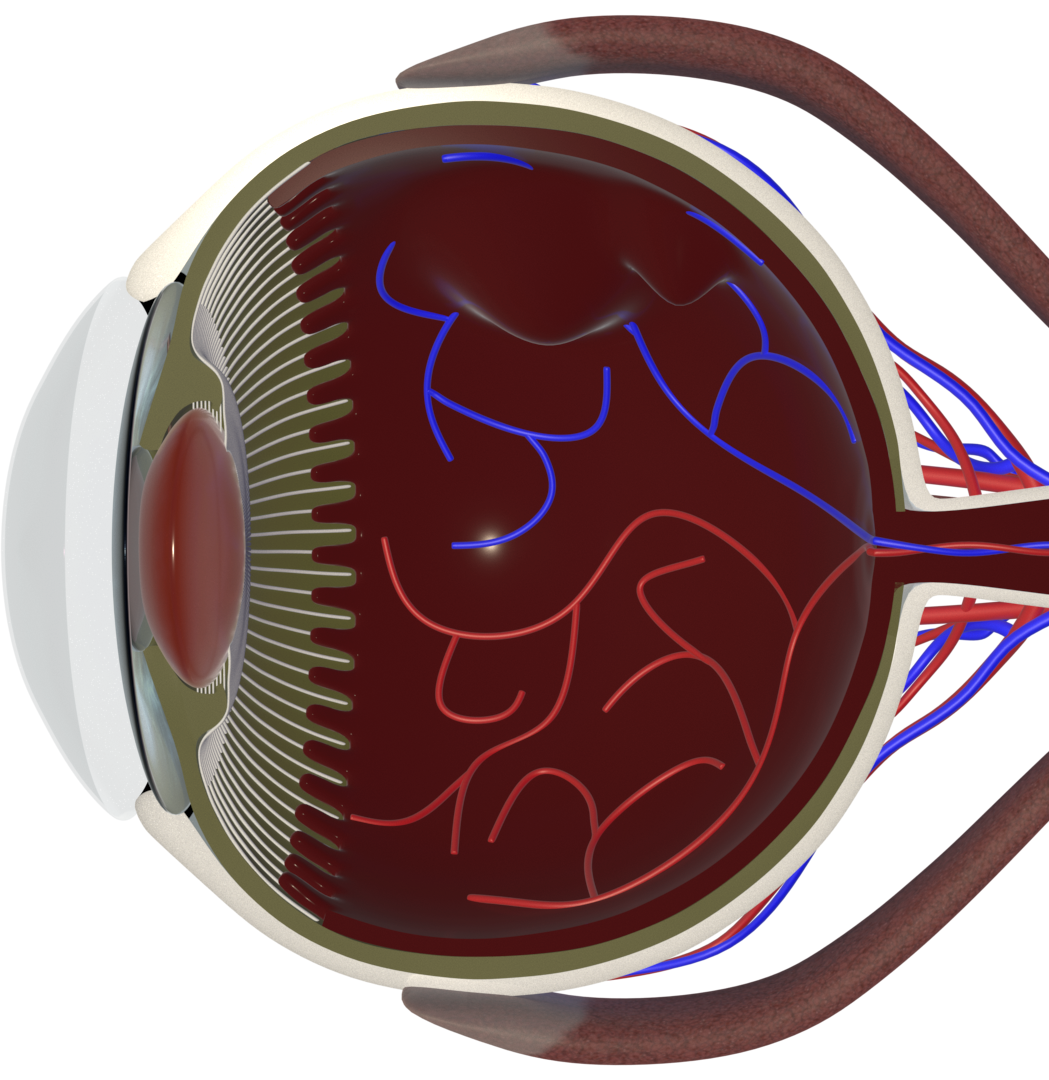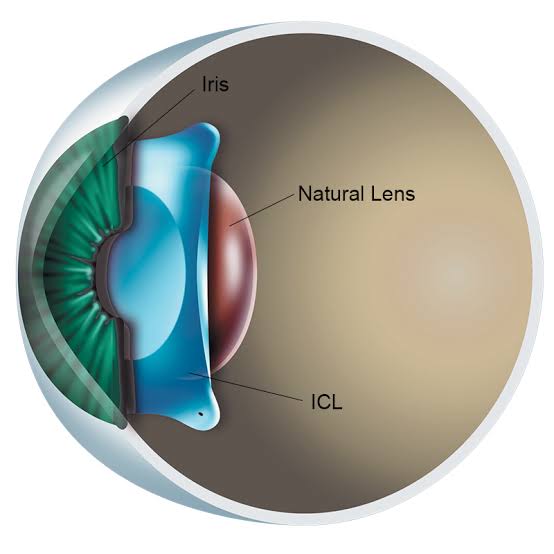Home > Specialties > ICL
ICL Surgery
Implantable Collamer Lens (ICL) is a type of refractive surgery, in which an artificial lens is implanted in the eyes permanently. ICL is required to treat moderate to severe Nearsightedness (Myopia), Farsightedness (Hyperopia), and Astigmatism. This surgery may be possible for people who don’t meet the criteria for LASIK surgery.


Causes of ICL Surgery
The criteria that determine the candidacy for ICL surgery are:
- Candidate age should be over 21 years
- Glasses or lens prescription should have been stable for at least one year
- Moderate to severe myopia, hyperopia, or astigmatism.
- Candidates should have healthy eyes, free from any conditions that may affect the success of the surgery.
- The size of the pupil in dim and bright light conditions is assessed to ensure that the ICL does not cause significant glare or halos.
- Candidates should be understanding of potential outcomes and limitations of ICL surgery.
Benefits of Implantable Collamer Lens
ICL surgery offers several benefits and is the preferred choice for people seeking vision correction. Here are some benefits of ICL surgery:
- ICL surgery corrects moderate to severe myopia, hyperopia, and astigmatism and provides excellent visual outcomes.
- The Implantable Collamer Lens is made up of collagen and copolymer which is well tolerated by the body and causes minimal inflammation or other adverse effects.
- The ICL surgery is reversible. If necessary, the lens can be removed or exchanged with another ICL, or other procedures can be performed without permanently altering the structure of the eye.
- Like LASIK or PRK, ICL does not reshape the cornea, making it suitable for people with thin cornea.
- Recovery rate of ICL surgery is quick, with minimal discomfort and a low risk of complications.
- ICLs are available in a broad range of corrective powers, allowing customization to meet the unique needs of each patient’s prescription.
- For some patients, ICL improves night vision compared to glasses or contacts.
- ICL Provides long-term stability without inducing changes in corneal shape.
- Suitable for people involved in active lifestyles like sports and swimming as it does not impose restrictions during recovery.
Types of ICL Surgery
For ICL surgery, you will meet with your ophthalmologist a week before your surgery. They will use a laser to make small holes between the front of your eye (anterior chamber) and the natural lens. This prevents pressure and fluid from building up in the eye after the ICL procedure.
The ICL eye surgery involves several steps:
- Before surgery, your eye doctor does a comprehensive eye test to evaluate the candidacy for surgery and measure the corneal thickness, refractive error, and overall eye health.
- Then, your surgeon gives you anesthetic eye drops to numb your eyes.
- After that, your surgeon cleans the area around your eye and opens your eyelid with the help of a lid speculum.
- Then, the surgeon makes a small incision at the edge of the cornea in your eye. For cornea protection, they use a lubricant.
- Then, the surgeon will insert the ICL through the small tube-like device (cartridge) into the anterior chamber of the eye.
- Once the ICL is carefully positioned behind the iris (the colored part of the eye) and in front of the natural lens. The lens unfolds and gently settles into place.
- Then, the surgeon will remove the lubricant and check the alignment and stability of the ICL. The incision will heal on its own, it is so small there is no need for a stitch.
- After that, your surgeon will put ointments or eye drops in the eye, and cover it with an eye patch.
- For post-operative care, your surgeon gives instructions to prevent infection and promote smooth recovery.
- After surgery, you may feel some mild discomfort or blurry vision but this resolves quickly.
- Regular follow-up visits are scheduled to monitor your healing progress and check your vision. your surgeon will assess your visual acuity and complications.
- Most patients experience improved vision within a few days after surgery, although the full stabilization of vision may take a few weeks. Avoid strenuous activities and swimming for a period recommended by your surgeon to minimize the risk of complications.
Modern Eye Care Hospital is a Center of Excellence for Eye Surgeries in Bihar
Address
Mogalkuan – Rahui Road 700m from, Basar Bigha Rd, Sohsarai, Bihar Sharif, Distt Nalanda, Bihar 803118
Call Us
(+91) 9308462602
Mail us
moderneyecare.in@gmail.com
